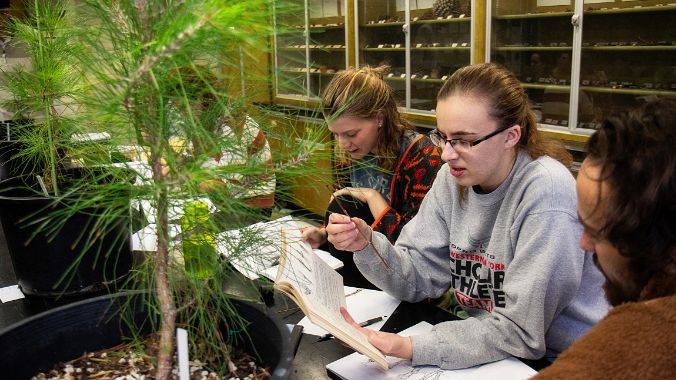DEPARTMENT OF Environmental Biology
Forest Health
Supporting healthy forests by mitigating threats caused by invasive species, poor management, climate change, fire, and other anthropogenic factors.
The forest health major prepares biology-oriented students for employment in positions that deal with maintaining the health of forest resources. The major is distinct from those in the Department of Forest and Natural Resources Management and its forest ecosystem science major, which provides skills and preparation in forest management. Employers today have expressed a need for a deeper understanding of the science behind the trees. Positions requiring a forest health background are found in federal and state agencies, nonprofit organizations, and the private sector. With good performance, the forest health major prepares students for graduate study in preparation for higher-level positions, such as forest pathologist, entomologist, or mycologist.
Science foundation enhanced with field research opportunities.
The curriculum provides a solid foundation in the biological and physical sciences coupled with courses that aid in the wholistic understanding of ecological and human forces that shape forest ecosystems. The curriculum draws on the breadth of the field and includes courses in forest pathology, entomology, forestry, microbiology, mycology, soils sciences, and ecology. Students will gain field and lab-based skills such as the identification of biological agents of disease, monitoring of forest changes, and assessment of forest health risks. Six credits of field courses are built into the curricula, three at the Cranberry Lake Biological Station over the summer, and three on campus.


